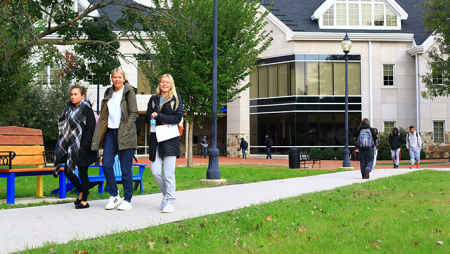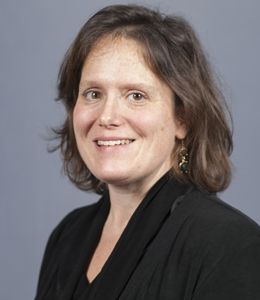Is the Format of the MCJ Program Flexible?
Widener University’s master’s in criminal justice program is 100% online and asynchronous. With this format, you can engage in the course materials at any time, from any location. You can complete your coursework at times that are convenient for you. This format is ideal for students who have non-traditional working hours or whose schedules may vary from week to week.
One week you may find yourself watching your professor’s recorded lecture late at night, and the following week you may be listening to a podcast and engaging with your classmates on a discussion board during your lunch break.
An online criminal justice master’s degree also allows you to complete the degree from any location. If you re-locate for career or personal reasons during your learning, you do not need to worry about transferring to a different program, potentially starting over or losing credits.
Working professionals can access learning resources from a variety of locations: from their home office, the kitchen of their vacation rental, a community library, or a hotel room. With an online program, there is no need to worry about missing a class because of a work conference or a family vacation. With internet access, there is nothing stopping you from engaging in the learning materials for each week.
Can I Pursue My Educational Interests in Criminal Justice?
Everyone has unique interests in the criminal justice field. With Widener University’s MCJ degree program, you will enroll in a program that allows you to select courses that pique your interest or meet your professional needs. Of the 30 credits needed to complete Widener University’s online master’s in criminal justice degree, only 12 of those credits are earned from required courses. This gives you the flexibility to enroll in a variety of elective courses. Students may need or want a break during the summer months; that’s why all required courses are offered during the fall or spring semesters.
Are the MCJ Program Requirements Flexible?
Widener University’s MCJ degree allows you to complete your degree in a variety of ways: thesis, comprehensive exams, or a capstone course offering three additional options.
A capstone project is the culmination of the graduate school experience. It should challenge you to apply what you have learned through your graduate program and to think critically about the criminal justice field.
If you select the capstone course option, you will work closely with a faculty member to: write a research paper similar to a thesis (without the collection of data), write a policy-informed paper, or develop and prepare your own course. With the research paper option, you'll select an area of specialization and dedicate the semester to becoming an expert in the area. This is an ideal option for students who would have liked to learn about a specific topic related to criminal justice but did not have the opportunity to enroll in a relevant elective.
Option two, the completion of a policy paper, is a great opportunity for students who are working in the field and are aware of current issues or challenges. Finally, the teaching capstone allows students to develop an undergraduate course (i.e., syllabi, rubrics, assignments, lectures) and is the perfect choice for students who intend to seek employment as an adjunct professor.
Will I Have Opportunities for Mentorship and Interactions with Qualified Faculty?
In Widener University’s MCJ program, you will work closely with the Widener faculty. While the program is online and asynchronous, faculty still offer optional live classes on occasion. Have you just completed an assigned reading that you want to discuss with your professor and other classmates? If so, you have the chance to engage in an optional Zoom class.
All faculty members are available for Zoom appointments, and full-time faculty members hold five hours of scheduled office hours each week.
Each student is also advised by the director of the program who helps with course selection, advises on elective courses that may best meet students’ professional goals, and discusses job opportunities at the completion of the program. Widener University has a dedicated staff at the office of Career Design and Development always ready to assist with anything from resume review to mock interviews.
All full-time faculty members also have robust research agendas and regularly publish in the top criminal justice-related journals. Take advantage of the opportunity to work with a faculty on one of their projects!



